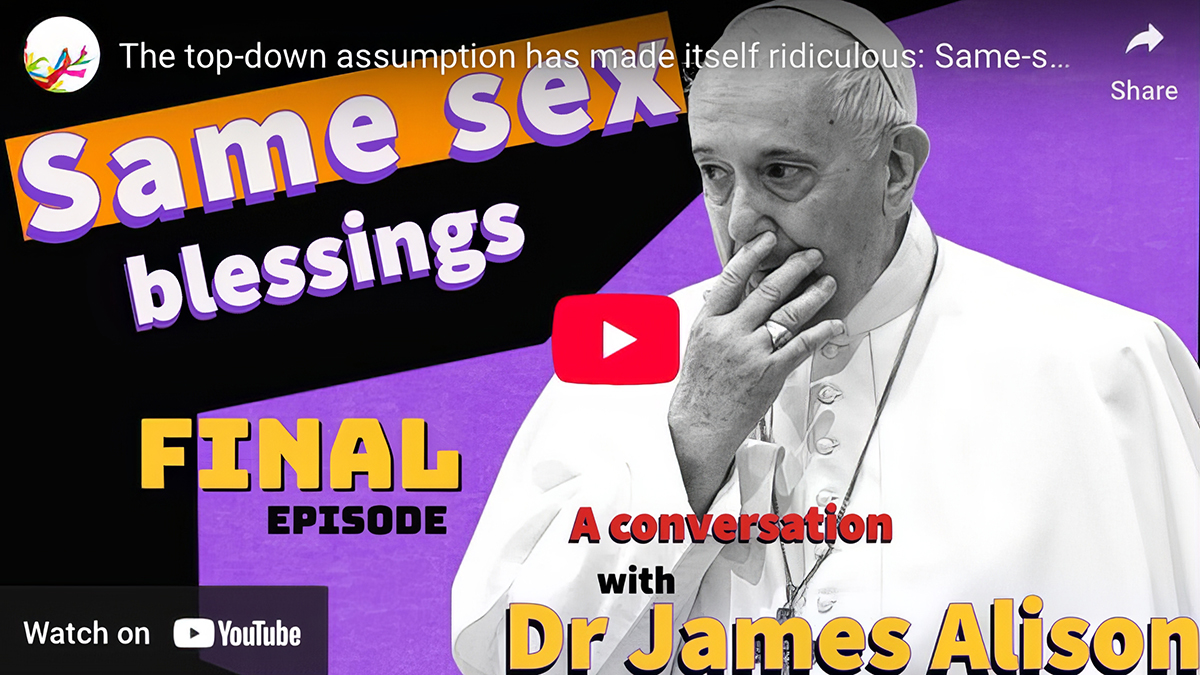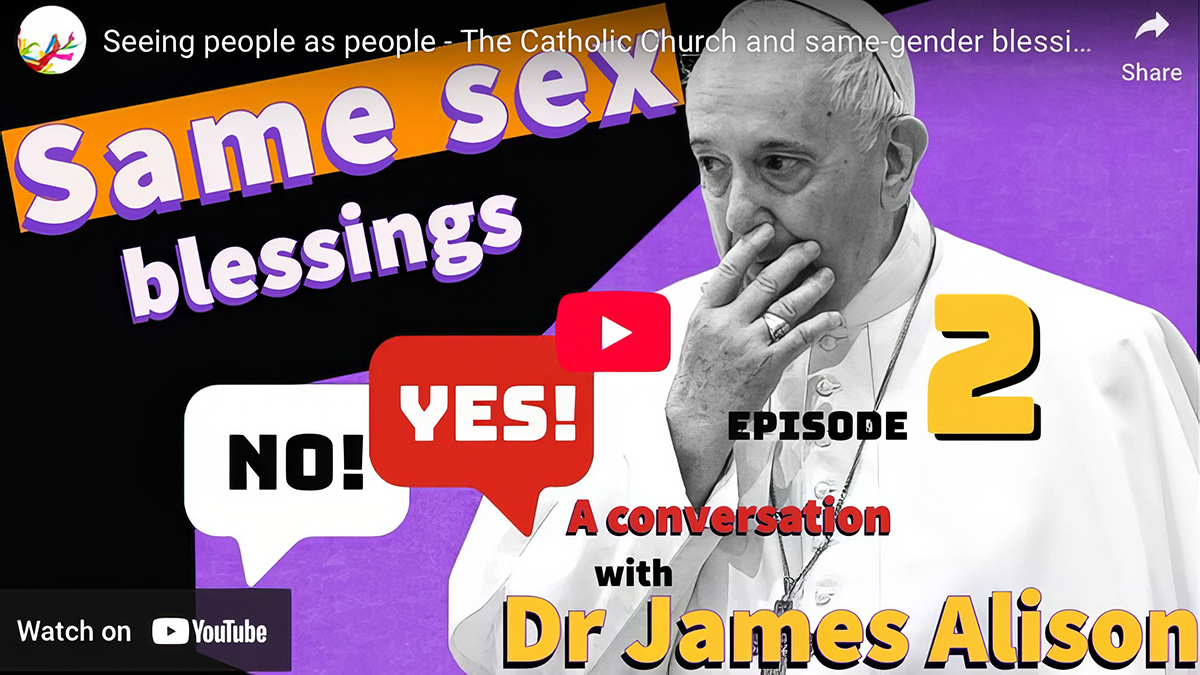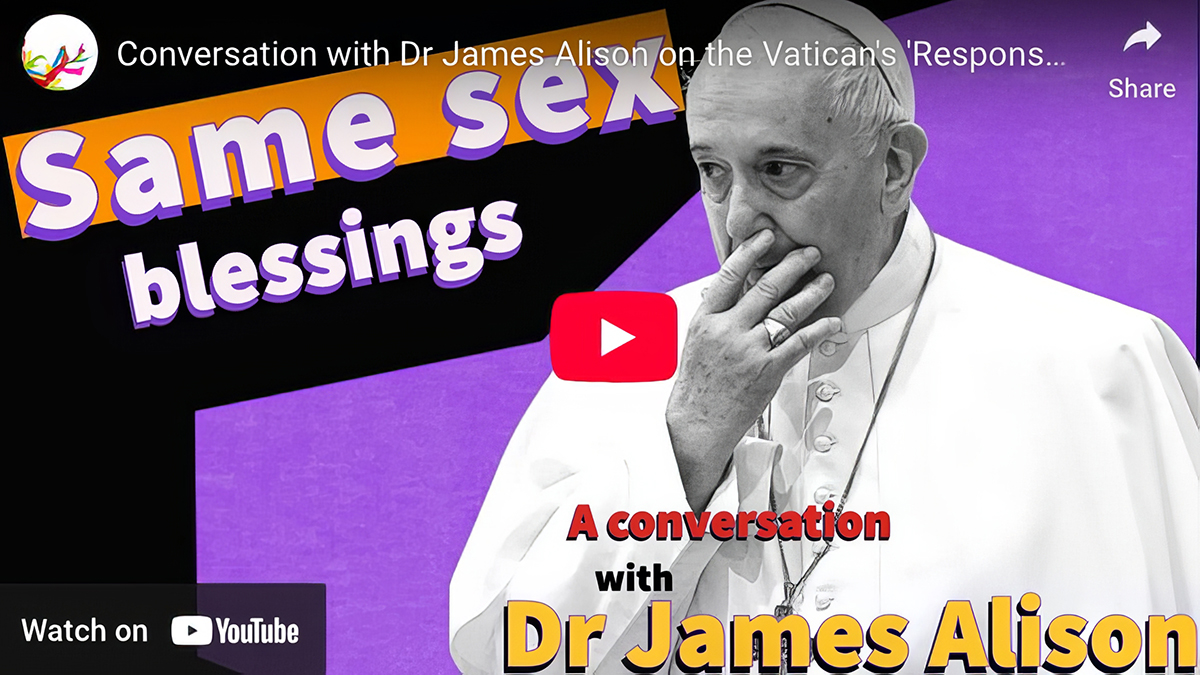May 2021
-
Synodality: Power to the people
The Synod word has fallen out of widespread use in Catholic circles, but it is back, big-time. What does it mean? What are the issues? How should we approach a Synod? Joining Flashes of Insight host Dr Joe Grayland to discuss Synods and Synodality are: Synods were introduced to the Archdiocese of Wellington when Cardinal…
-
The top-down assumption has made itself ridiculous
Because marriage equality is so prevalent in Catholic countries, Joe Grayland pose whether Catholic theology more than Protestant theology is more open to same-sex blessings? Is there a difference between catholic and protestant theology – more than evangelical protestant theology? James Alison responds to these questions. “Intrinsic to Catholic theology is the notion that grace…
-
Seeing people as people
Where is the church going with the debate over same sex blessings? Should our understanding of liturgy, blessing and sacraments be radically rethought or is the problem that we understand blessing, sacraments and liturgy as things that are “done to us”? Answering from a liturgical perspective Tom O’Loughlin says ‘liturgy is a human response to…
-
The Vatican’s response to same-gender blessings
The Vatican’s same-gender blessings statement (Responsum) has back-fired according to theologian Dr James Alison. “I’ve been rather encouraged, and particularly surprised how much more unworriedly critical a vast number of people, including cardinals and bishops have been”. He’s calling the Vatican’s move ‘a shot in the foot’. James Alison spoke with Professor Thomas O’Loughlin, Fr…
Get Flashes of Insight
Donate
All services bringing Flashes of Insight are donated.
Significant costs, such as those associated with site hosting, site design, and email delivery, mount up.
Flashes of Insight will shortly look for donations.




